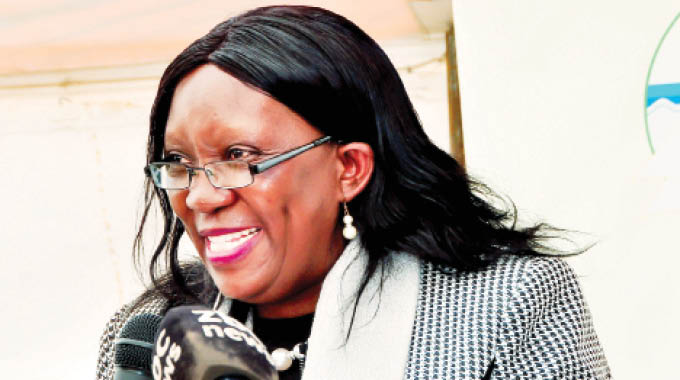‘Balance Covid-19 mitigation, saving jobs’

Oliver Kazunga, Senior Business Reporter
BUSINESSES should thrive to strike a delicate balance between Covid-19 mitigation measures and saving jobs across different sectors of the economy, Reserve Bank of Zimbabwe (RBZ) Deputy Governor, Dr Jesimen Chipika has said.
As the deadly pandemic continues to spread across the globe inducing a strain on economies, lockdown measures have become a pattern with companies also trimming staff numbers. Zimbabwe is also being affected.
Speaking during the presentation of the Zimbabwe Poverty Update 2017-2019 and the third round of the households’ survey to measure the socio-economic impact of Covid-19 jointly carried out by World Bank and Zimbabwe National Statistics Agency (Zimstat) on Friday, Dr Chipika said ensuring job security must be a priority.
“The finding that caught my attention is around employment and it said 21 percent of those who were working pre-Covid no longer worked in July 2020 mostly because businesses closed due to Covid-19 restrictions,” she said.
“A total of 40 percent of urban wage workers were paid less than before Covid and this has implications on the survival of businesses in the country and security of employment under our Covid-19 management.
“So, as we do the important Covid-19 management, we must bear in mind the implications on employment in the country.”
The survey also found that between 2017 and 2019 the number of people that ventured into the informal employment sector increased in urban areas. In that regard, Dr Chipika said this has major implications for the industrialisation and financial inclusivity policies of the country.
“In inclusivity, we are a key player because all these people who have been pushed into the informal sector will try to do an economic project here and there and that’s where our financial inclusion programme comes in to support those people hopefully to grow into bigger business,” she said.
The survey also indicated that access to health care in the country has worsened with medicine not being available in rural areas and expensive in urban areas. This, Dr Chipika said, has major implications for the health and pharmaceutical policies and the safety nets of the country.
“Those involved with those areas should look at these results and see what we can do. Following Covid-19, school closures of the first half of 2020, only 25 percent of the rural school-going children continued learning compared to 60 percent of urban school-going children.
“Given that the majority of our population resides in rural areas, this has serious negative implications on access to education, quality of education in the country and examination results and everything, which depends on the empowerment derived on education.
“Therefore, fast innovation is required in education given the continued raging Covid-19 pandemic,” said the deputy governor.
“Coverage of food aid programmes remains low under Covid-19. So, l say safety nets, response to shocks need to improve in the country.” — @okazunga.












Comments